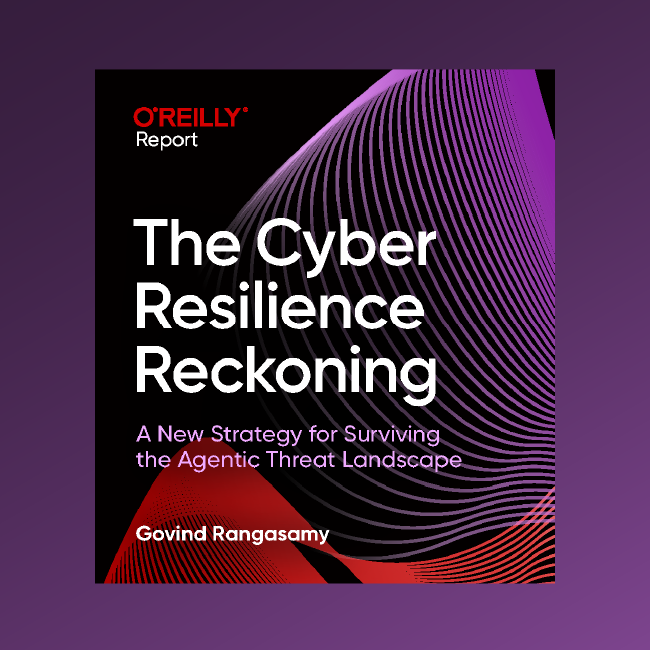Find Threats and Recover Clean Data
Proactively uncover hidden threats and automate rapid response to help out-maneuver attackers recover your business-critical data.

How we do it
Find, respond, quarantine threats—fast
Actively seek out advanced threats, automate response and recovery, and help minimize business impact by building in cyber resilience before, during, and after an attack.
Uncover hidden threats
Leverage advanced scanning, AI-enabled encryption detection, and custom rules to reveal stealthy malware and suspicious activity within backup data and identity systems.
Accelerate incident response
Automate investigation and threat containment workflows, reducing manual effort and enabling your team to respond to threats.
Limit attack blast radius
Isolate compromised data and systems quickly to help protect unaffected assets from harm and prevent reinfection during recovery.
Detection & Response Features
Detect, hunt, & respond to threats instantly
Leverage advanced detection and recovery tools to quickly surface, grasp, and act on data-informed intelligence—empowering decisive response to cyber threats.

Rapid threat detection
Scan backups for both known and zero-day threats using AI-enabled engines to spot malware, anomalies, and early signs of encryption.
Explore Cleanpoint IdentificationThreat hunting & response workflows
Find hidden threats and indicators of compromise (IOCs) with custom rules to orchestrate rapid, automated data protection, containment, and recovery actions.
Explore Threat ScanCleanroom Recovery validation
Test and validate data in an isolated Cleanroom before restoring in production, preventing reinfection and maintaining a secure recovery environment.
Explore Cleanroom RecoveryANALYST REPORT
The Forrester Wave™: Data Resilience Solutions
Commvault is the only vendor named a “Leader” in every Forrester Wave for Data Resilience since 2019—proven innovation trusted by IT and Security leaders to stay ahead.

Our Reach
Supporting more than 100,000 companies
solution brief
Cyber Resilience Handbook
This ebook will introduce best practices to you that enable your organization to get from minimum viability to full cyber recovery and face upcoming threats in the era of AI.


Cyber Recovery 101: Your Guide to Help Build a Resilient Cloud-first Enterprise

The Cyber Resilience Reckoning

Cyber Resilience in Regulated Industries
Frequently Asked Questions
What is ‘Threat Hunting’?
Threat hunting is a proactive way to find and stop threats that may have gone past your current security measures before they become costly events. It relies on a layered approach to spotting anomalies with techniques that help you detect early signs of compromise by monitoring deviations in behavior, patterns in traffic, or activity in unexpected places. With the right tools and a plan, both security and IT teams can help stop threats swiftly and recover quickly.
Why is threat detection relying only on signature-based engines not sufficient anymore?
Signature-based detection is fast and useful for known threats, but it’s easily evaded and blind to new, obfuscated, or fileless attacks. Modern cyber resilience demands a unified, intelligent approach that goes beyond signatures—combining static, heuristic, behavioral, and AI-enabled analysis to validate your backups are clean and your recoveries are safe.
Why is ransomware considered such a serious threat?
Ransomware is dangerous because it encrypts or locks critical data and systems, halts business operations, and demands payment for recovery — often with no guarantee of return. It can spread rapidly, target backups, and exploit security gaps, leading to data loss, costly downtime, reputational damage, and possible regulatory penalties. Even if the ransom is paid, there’s no guarantee data will be fully restored or that attackers haven’t left backdoors.
Even with backups, recovery can be slow and incomplete if malware remains undetected while having sufficient threat and Cleanpoint detection help protect against ransomware by bringing certainty to incident response processes and speeding up response after an attack, so organizations can restore clean, unmodified data.
How does threat hunting help remediate cyber risk?
Proactive detection remediates cyber risk by identifying threats early—often before they cause damage—through monitoring data, behavioral analysis, and AI-enabled insights. This enables rapid response, containment, and removal of threats, reducing the chance of data loss, downtime, or spread. By catching attacks before they escalate, organizations can maintain business continuity and minimize impact.
Get Started
Try Commvault Cloud today
Cyber resilience for the cloud-first enterprise, with the first platform built to enable continuous business.








